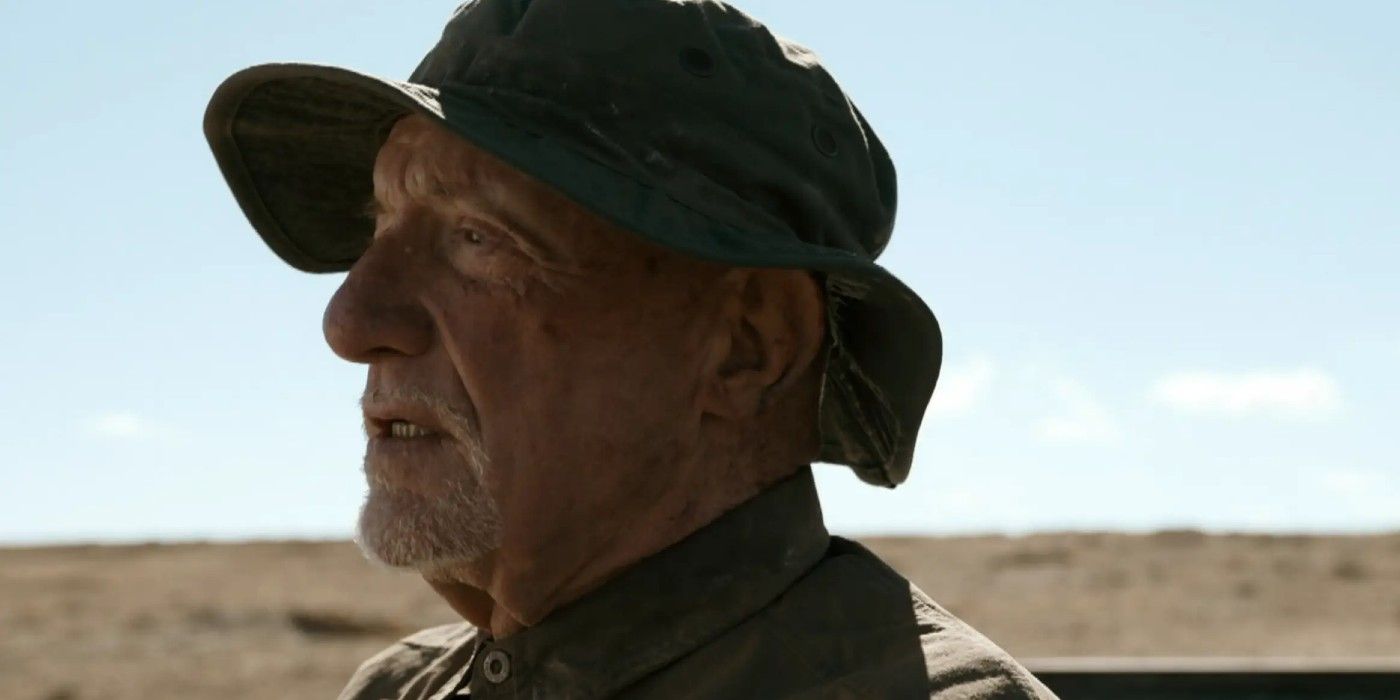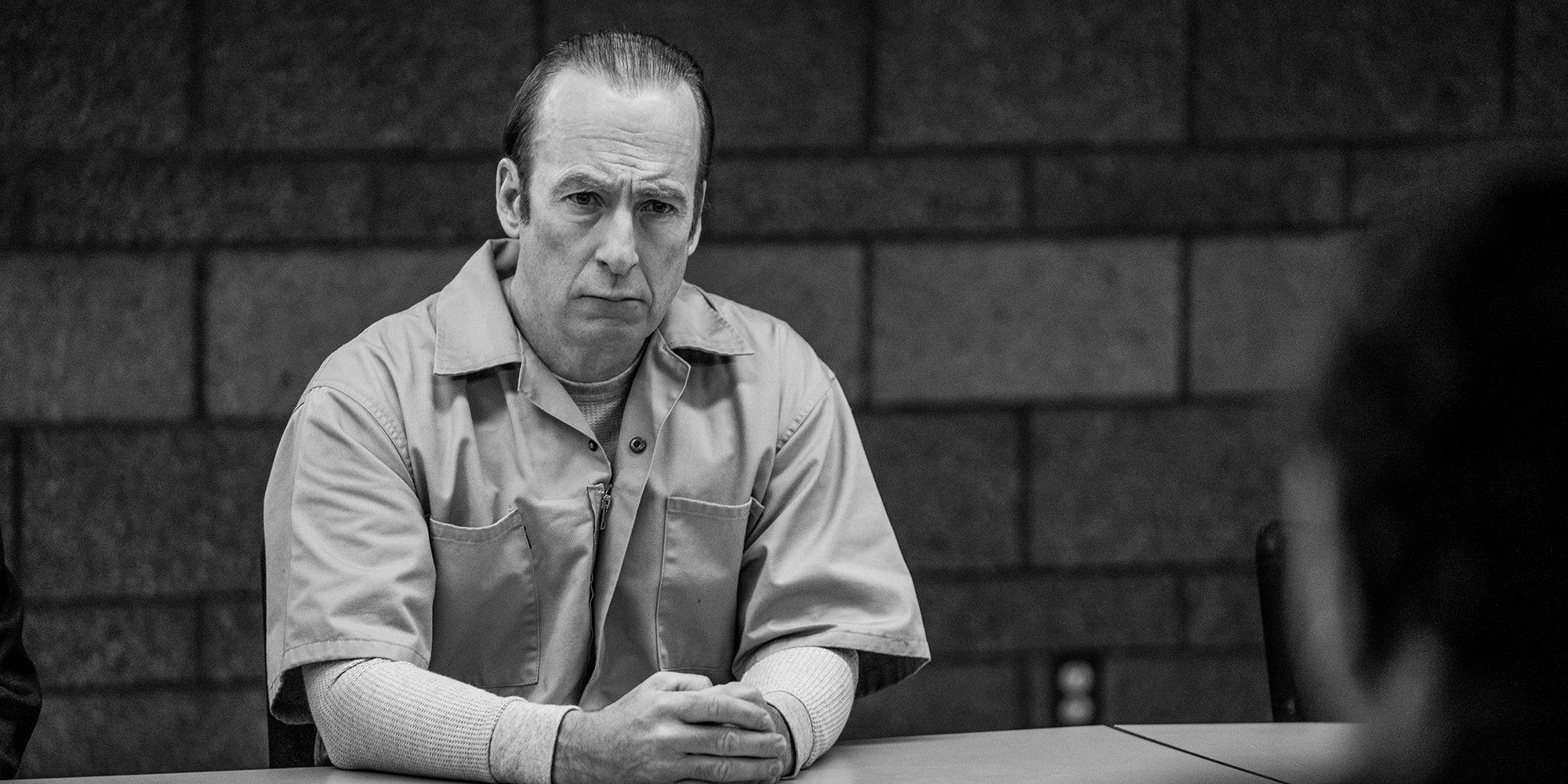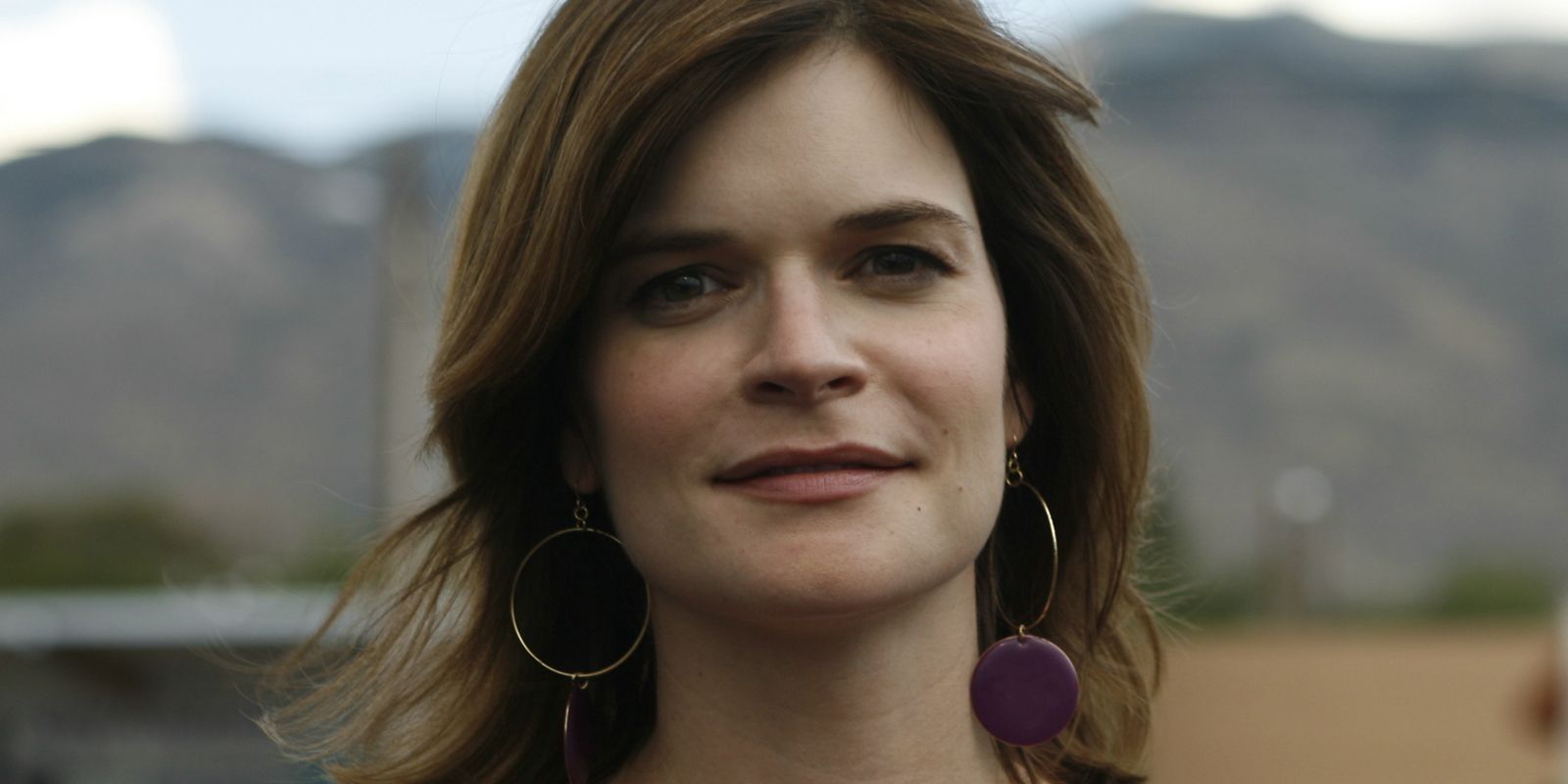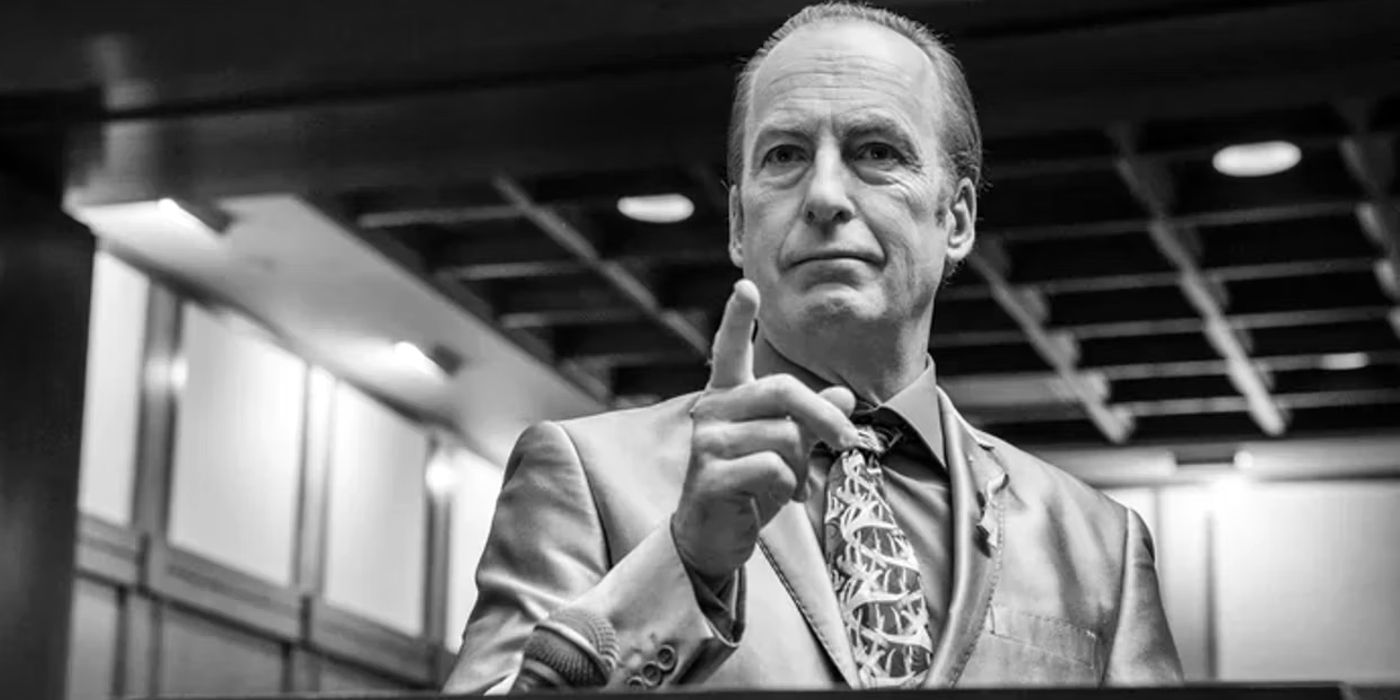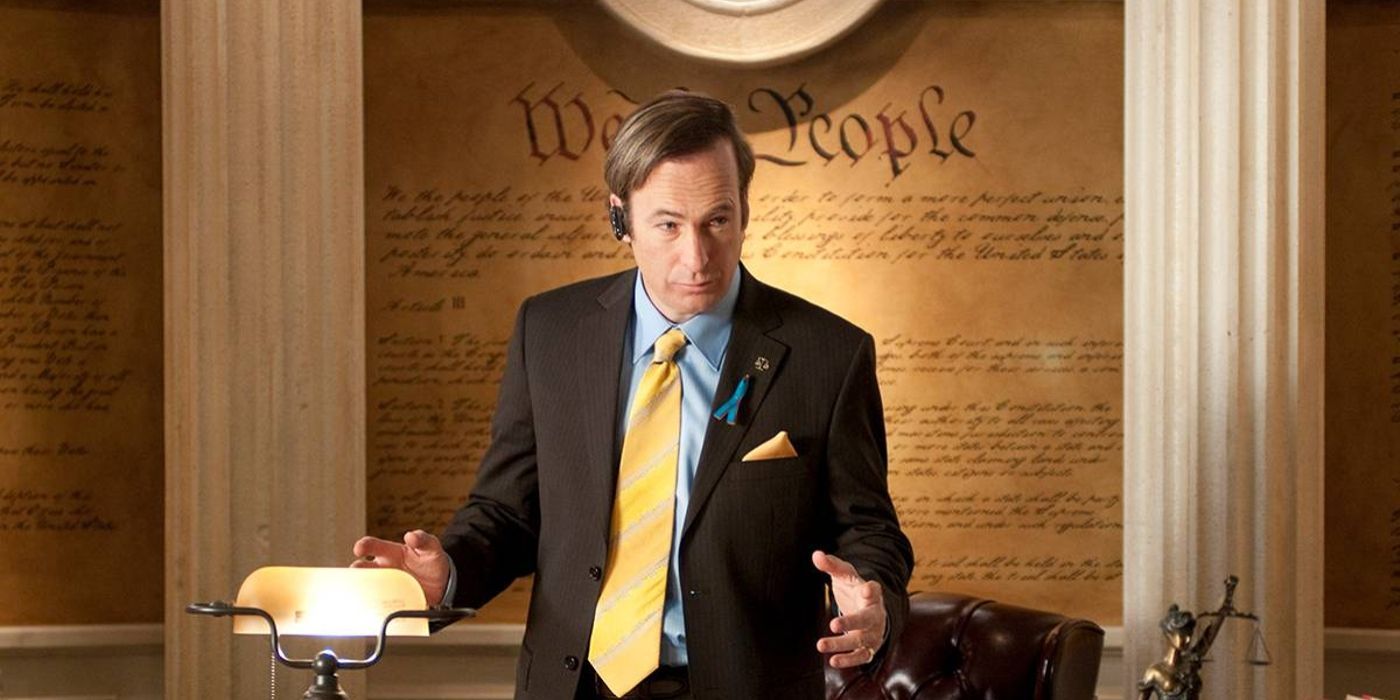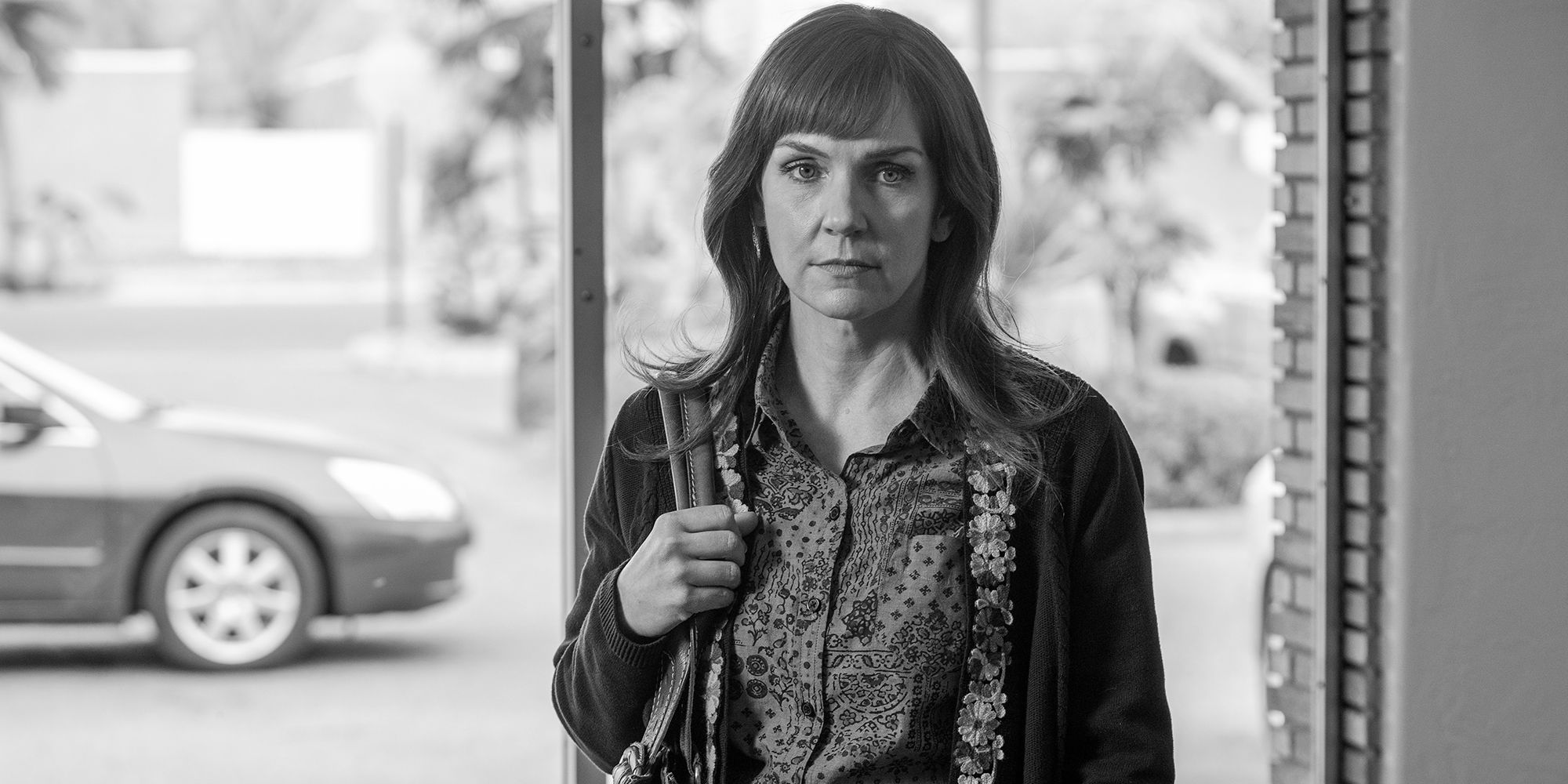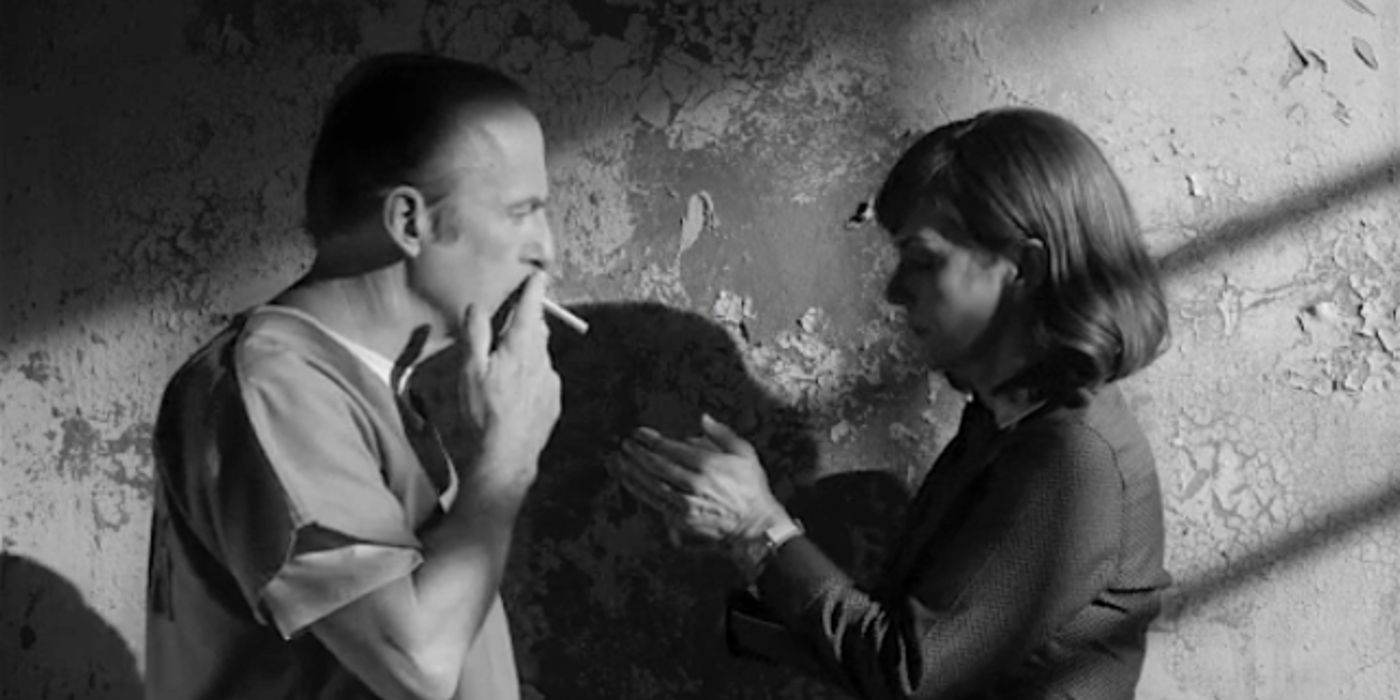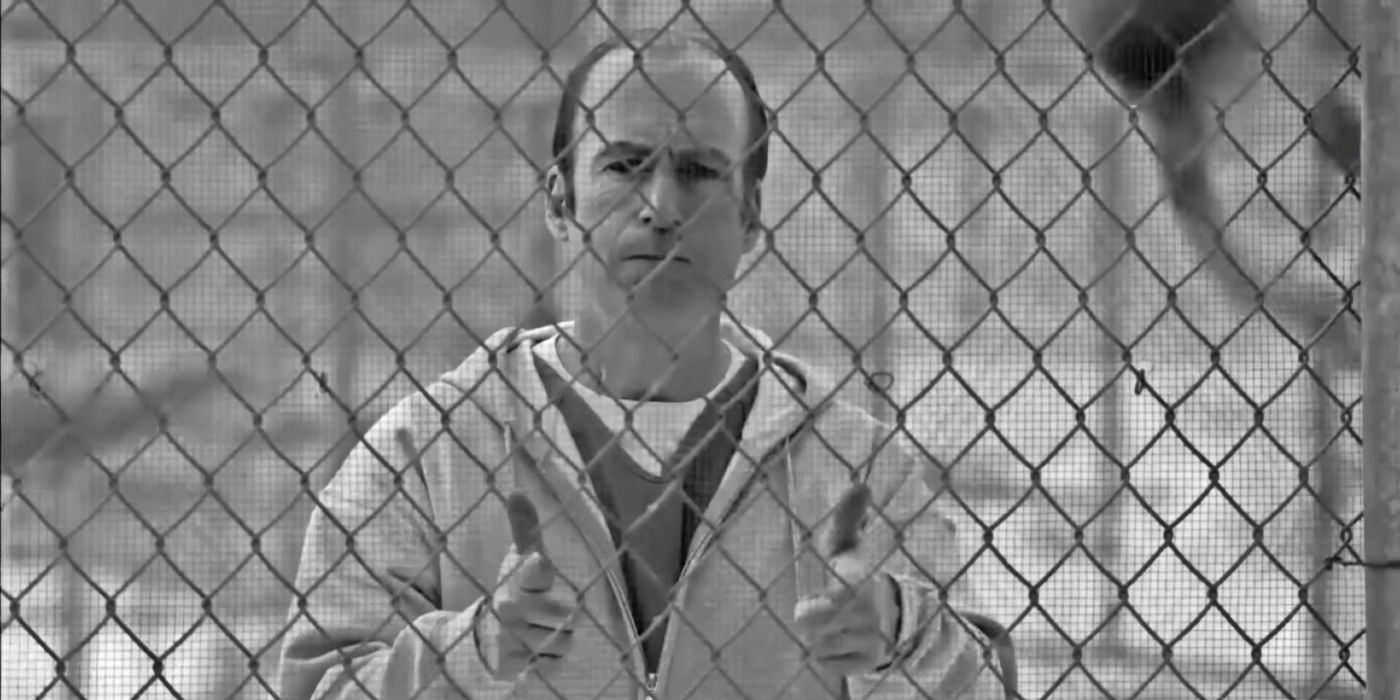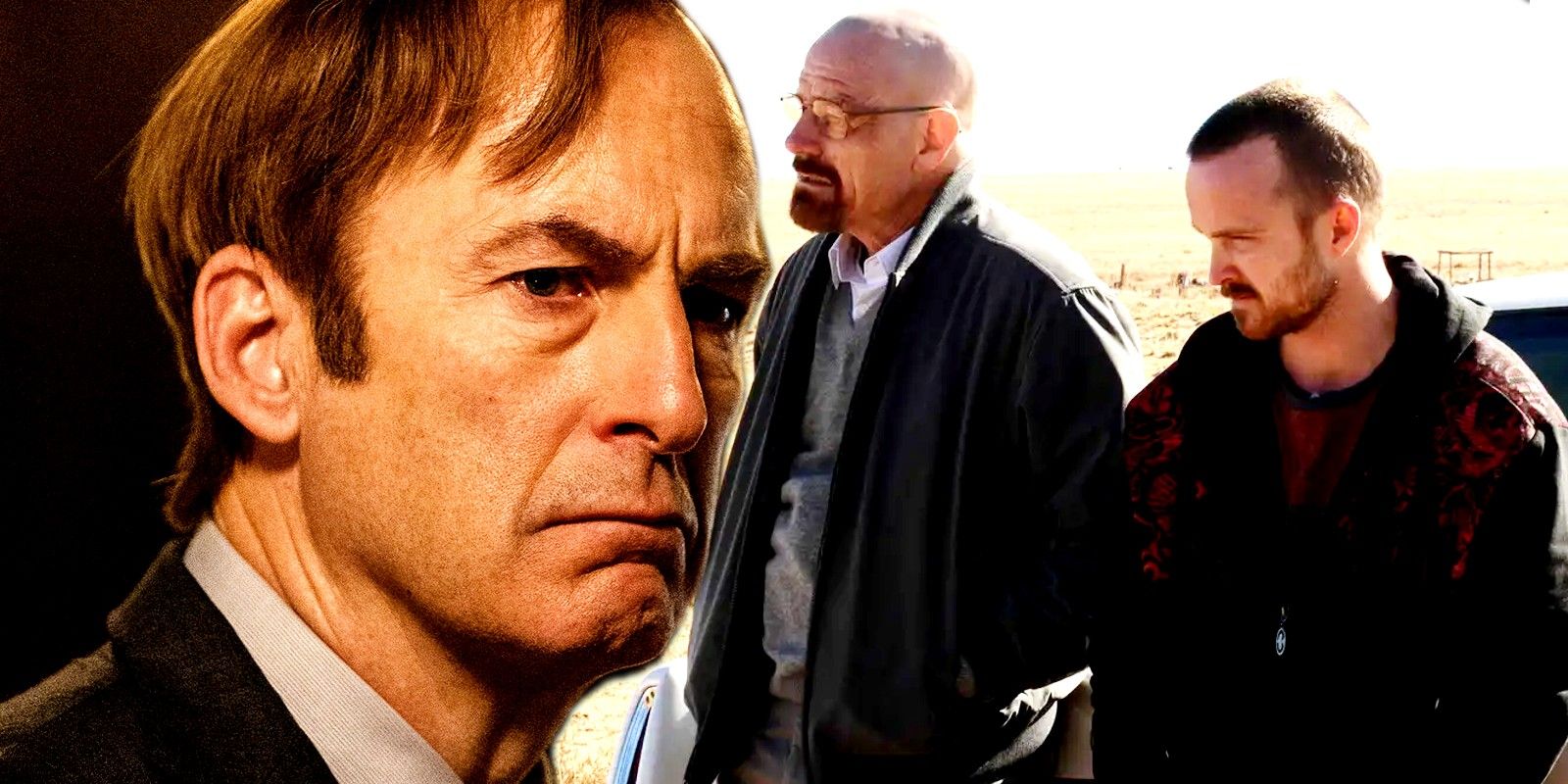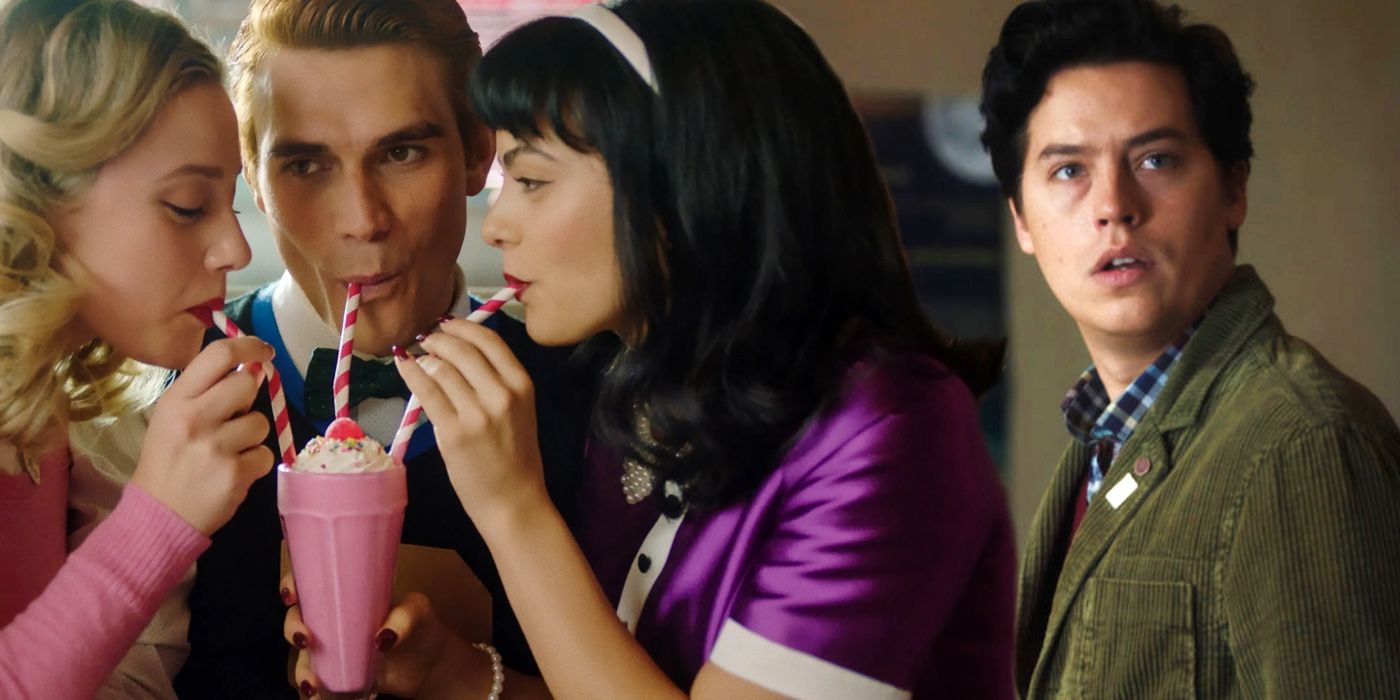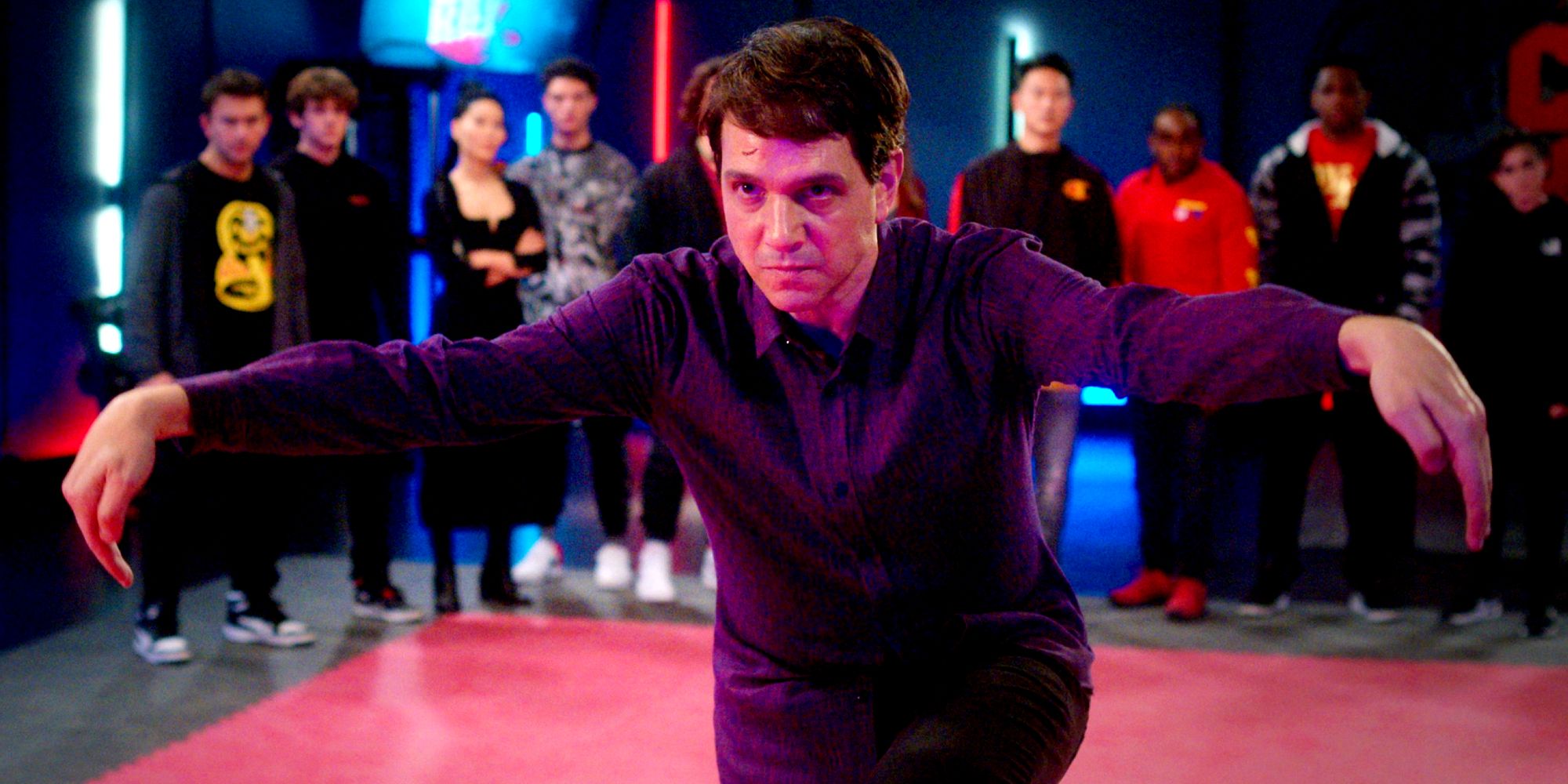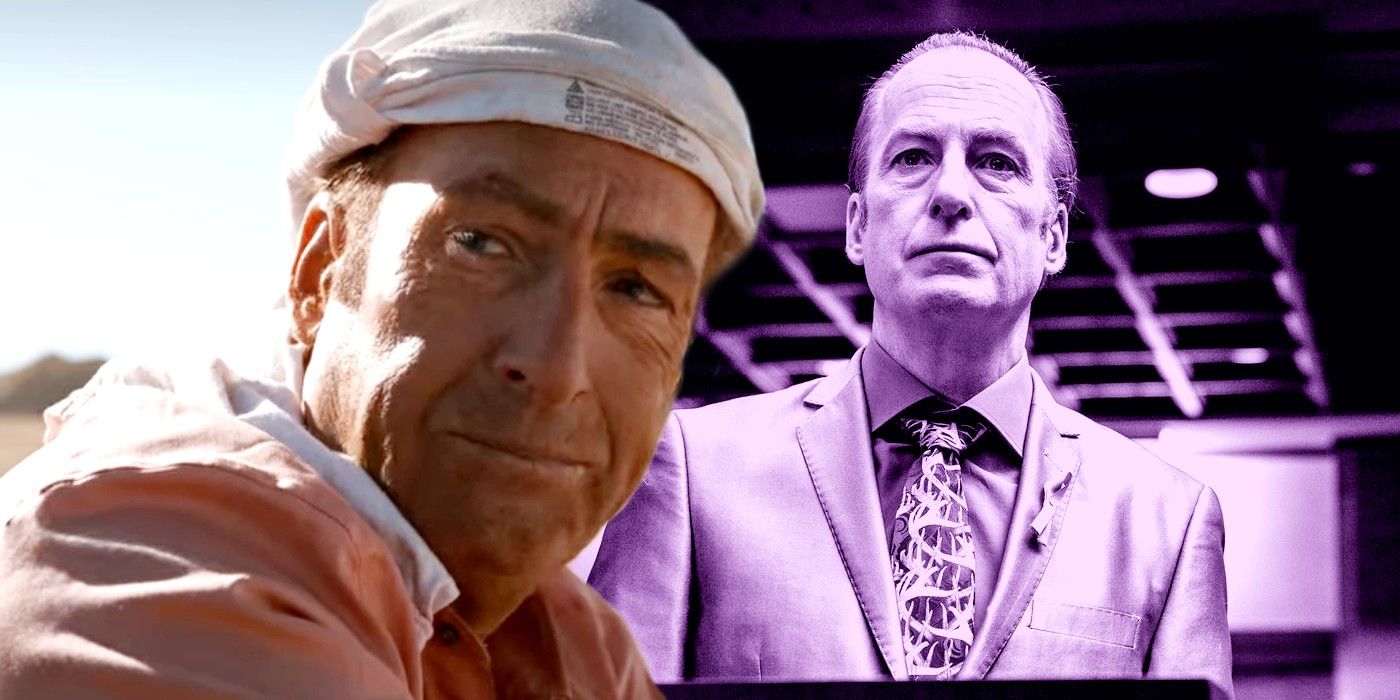
Unraveling the Mysterious Finale of Better Call Saul Season 6 - All Your Questions Answered!

Unravel the gripping conclusion of Better Call Saul Season 6 as we delve into Jimmy's time machine query, Saul's plea bargain, Marie's impactful cameo, Jimmy's courtroom confession, his shocking transformation, Kim's uncertain fate, Jimmy's ultimate destiny, and the creators' take on the finale
The conclusion of Better Call Saul has solidified its status as a remarkable television series, rivaling the greatness of Breaking Bad. The finale reveals Jimmy McGill's alias, "Gene Takavic," in Omaha, who is ultimately exposed and arrested for his involvement in Walter White's crimes. Meanwhile, Kim Wexler's life in Florida takes an unexpected turn when she receives a phone call from Jimmy, leading her to confess to her role in the Howard Hamlin scam and his murder.
The series finale of Better Call Saul begins with Jimmy attempting to evade capture, embarking on a final desperate attempt for freedom. Throughout his journey, flashbacks offer insights into unseen moments from both Better Call Saul and Breaking Bad, shedding light on the motivations behind Jimmy's actions in the present. Ultimately, the story of Jimmy McGill reaches a definitive and bittersweet conclusion in the season 6 finale of Better Call Saul.
Why Jimmy Asks Mike & Walt About A Time Machine
The final episode of Better Call Saul features a series of flashbacks involving key characters. Jonathan Banks portrays Mike Ehrmantraut in a flashback from season 5's intense "Bagman" episode. Bryan Cranston appears as Walter White in a flashback from Breaking Bad season 5's "Granite State." Additionally, Michael McKean portrays Chuck McGill in a flashback shortly before the events of Better Call Saul. These three flashbacks are united by the theme of regret and tie back to an Easter egg from the season 6 premiere.
The first conversation Jimmy has is with Mike while they are crossing the desert. To pass the time, Jimmy asks Mike what he would change if he had a time machine. Initially, Mike chooses a date in 2001, which is presumably when his son, Matty, passed away. However, he ultimately settles on the first time he accepted a bribe, realizing that he would have prevented his dark path from taking hold. Matty died after reluctantly accepting a bribe on Mike's advice, so Mike believes that if he had never become corrupt himself, his son would still be alive.
In a separate flashback, Jimmy asks the same question to Walter White. Walter's response centers around his decision to leave Gray Matter, a company he co-founded. Leaving Gray Matter is his greatest regret, highlighting his ambition and desire for fame and success.
In both scenes, Jimmy's own responses lack meaning. He informs Mike that he would utilize a time machine to invest in Berkshire Hathaway and amass immense wealth, while he fabricates a story to Walt about injuring his knee during a deceptive "slip 'n' fall" scheme. Undoubtedly, both instances are merely Jimmy's way of deflecting from the truth, with his true remorse concealed within the very question of the "time machine" itself. Throughout Better Call Saul season 6, Jimmy is seen in possession of a copy of HG Wells' The Time Machine, and it is revealed in the finale that this book originally belonged to his brother, Chuck. The true moment that Jimmy McGill desperately yearns to alter is the event that destroyed his brother's career in Better Call Saul season 3 – the act that ultimately led to Chuck's tragic demise.
Saul Goodman's Plea Bargain Explained
After escaping from Marion's house and retrieving his valuable shoebox, Jimmy McGill seeks refuge in a dumpster. As he glances at his precious diamonds and the business card of the Disappearer, it becomes apparent that he is plotting his next extraction. Unfortunately, before he can execute his plan, the police apprehend him. While confined in his holding cell, Jimmy's attention is drawn to graffiti etched on the walls, boldly stating "MY LAWYR WILL REAM UR ASS." This triggers a familiar scheme in Jimmy's mind, reminiscent of his alter ego, Saul Goodman. Determined to explore this opportunity, he reaches out to his old lawyer friend, Bill Oakley, who Francesca had previously mentioned was now working as a defense attorney in the sixth season of Better Call Saul.
Essentially, Jimmy plans to manipulate his understanding of the court system in order to obtain a favorable outcome and a remarkably lenient punishment. He recognizes that just one juror ruling in favor of the defense is sufficient, so he strategically presents a preview of his performance, portraying himself as a victim. This successfully instills uncertainty in the prosecution's mind regarding their ability to secure a conviction, which gives Jimmy the advantage to negotiate a plea deal and avoid a trial altogether. By leveraging his knowledge and strategically exploiting the risk of tarnishing lead prosecutor George Castellano's impeccable track record, Jimmy manages to reduce a life sentence to a mere seven years at a prison of his preference.
Why Betsy Brandt's Marie Schrader Cameo Is So Important
The final episode of Better Call Saul season 6 surprised fans with a cameo appearance from Betsy Brandt as Marie Schrader. While Bryan Cranston and Aaron Paul were already confirmed, the addition of Marie, the widow of a DEA agent who was killed pursuing Heisenberg and his allies, brought an unexpected twist. Marie is granted permission to attend Jimmy McGill's sentencing meeting, where he deliberately invites her, Hank's wife, into the room. This strategic move by Jimmy aims to send a message to the prosecution: "If I can confidently deceive a grieving widow, I might just be able to persuade a juror of my innocence."
Betsy Brand's appearance in Better Call Saul adds a new layer of significance to Hank's death in Breaking Bad's "Ozymandias," highlighting the ongoing impact of that pivotal episode while also honoring the characters who have managed to survive. Furthermore, Jimmy's manipulative behavior towards Marie serves as a clear indication of his deep moral decline as the conclusion of Better Call Saul approaches, setting the stage for a potential redemption arc.
Why Jimmy Finally Confesses In Court
Jimmy McGill achieves a miraculous feat by successfully negotiating a prison term of seven years. However, something triggers a change of heart, leading Saul Goodman to make a detrimental decision where he spills all his secrets during a shocking confession scene in court. The journey towards redemption for Saul Goodman initiates tentatively when he discovers that Kim Wexler has come clean. It is during the plane journey to New Mexico that Jimmy ultimately decides to reveal the truth himself.
Bill informs Jimmy that Kim not only signed a legal affidavit related to the Howard Hamlin incident but also showed it to Howard's widow, putting herself at risk of legal consequences. This revelation of Kim's selflessness serves as a turning point for Jimmy McGill, prompting him to acknowledge the need to cleanse his own conscience. In order to demonstrate his accountability to Kim, Jimmy disembarks from the plane and fabricates a series of lies about her involvement in the Howard scam to the prosecution.
This manipulation tempts Kim to attend the courtroom, where Jimmy intends to retract his false accusations. His aim was solely to ensure her presence and momentarily implicate her. When Kim parted ways with Jimmy in Better Call Saul season 6's "Fun & Games," she acknowledged their mutual encouragement of each other's dark sides. Although difficult to dispute, Kim's influence on Jimmy's decision to come clean in Better Call Saul's finale signifies their ability to evoke each other's inherent goodness.
Jimmy McGill Kills Saul Goodman In Better Call Saul's Finale
The man who enters the courtroom is Saul Goodman, dressed flamboyantly and exuding confidence, all of which are deliberate tactics for his final performance. As he confesses his sins, Saul fades away, allowing Jimmy to reclaim his true identity. There is a pivotal moment in the finale of Better Call Saul when Jimmy admits his involvement with Heisenberg, seeking approval from Kim. However, her expression remains impassive, signaling that Jimmy's admission falls short.
Returning to the podium, the former lawyer, destined for prison, delves into his deepest regret - the unresolved trauma of Chuck's suicide in season 3. Unburdening himself completely, Jimmy corrects the judge when she mistakenly calls him "Saul Goodman," affirming that his criminal alter ego is now eradicated forever. This aligns with the title of the Better Call Saul series finale, "Saul Gone." As Jimmy gazes at Kim once again, her demeanor softens, revealing a mix of pride and relief that Jimmy McGill has finally freed himself from the skeletons shackling his mind.
Is Kim Wexler's Better Call Saul Ending Happy?
In the aftermath of Breaking Bad, Kim's future in Better Call Saul is far from ideal. She finds herself in a mundane job that doesn't utilize her exceptional skills, displays minimal interest in her partner, and exhibits an uncharacteristic reluctance to make decisions for herself. The series finale of Better Call Saul further emphasizes Kim's unfortunate situation, as evident in a lunch break scene where she struggles to choose between Red Lobster and Topkapi. However, amidst the bleakness, creators Vince Gilligan and Peter Gould inject a glimmer of hope into Kim's ending by depicting her voluntary involvement at a free legal clinic. This mirrors her previous pro bono work in Better Call Saul season 6, where she offered legal aid to those in need. By reclaiming this facet of her old life, Kim takes the initial step towards breaking free from her current rut. Perhaps rediscovering her passion for law will eventually revive her former self, restore her confidence, and pave the way for a career change in the future. Although Kim's fate may not be conventionally happy, her new job offers the audience the possibility of a brighter tomorrow.
Better Call Saul season 6 concludes without confirming whether Cheryl Hamlin sues Kim. Jimmy's imprisonment may spare his ex-wife from a costly lawsuit. In the final scene of Better Call Saul, Kim appears to have traveled a long distance for the occasion, indicating that she is not financially struggling. However, Jimmy is unable to contradict the affidavit that his ex-wife signed. While Kim played a crucial role in inspiring Jimmy's confession, it was not solely to save her, as doing so would have nullified her own redemption arc, as confirmed by Better Call Saul's Peter Gould in an interview with Rolling Stone. Thus, Kim continues to face consequences for her actions in Better Call Saul, but there are still moments of hope.
Jimmy McGill's Final Fate Explained
Instead of keeping his court hearing focused on the matter at hand, Jimmy McGill turns it into a therapy session, ultimately rendering the deal he had negotiated useless. In a twist of fate, Jimmy now faces 86 years behind bars at the very prison he initially expressed a strong aversion to. Despite his dark future, much like Kim's uncertain ending, there are glimpses of hope amidst the bleakness that lie ahead for Jimmy.
Prison is not an enjoyable place for a former prosecution lawyer, but for an ex-defense lawyer who gained recognition for successfully representing criminals, it is not as terrible. Due to his reputation for defending wrongdoers and the respect he earned through his accomplishments with Heisenberg, Jimmy McGill is readily accepted by his fellow inmates, even though he cannot escape the overshadowing presence of Saul.
Furthermore, Jimmy's heartfelt admission in court has reconciled the strained relationship between him and Kim. Visiting under the guise of his legal counsel, Kim is able to have a cigarette and engage in a conversation with her former husband, putting an end to six years of hostility. While Kim and Jimmy are not rekindling their romance, and the possibility of them crossing paths again is unlikely, two small details indicate that their relationship has at least been repaired. Firstly, the cigarette burns in color rather than black-and-white, signaling the diminishing darkness of the Gene timeline. Secondly, as Jimmy playfully gestures gun fingers at Kim as she departs from the prison, she subtly responds by mimicking a gun shape with her own hands.
Better Call Saul leads audiences to assume Jimmy McGill will spend the rest of his life behind bars, and the final shot of Kim walking away implies that it's the last time they will ever cross paths. Although this conclusion may not be the most uplifting, it can be said that Jimmy dies as an honest man. As his brother Chuck once said during a flashback in the series finale of Better Call Saul, "There's no shame in retracing your steps and changing your course."
How The Better Call Saul Creators Explained The Ending
The Better Call Saul ending has been a topic of debate among fans, but hearing from creators Vince Gilligan and Peter Gould sheds light on their perspective. In a detailed discussion about the final episode, Gould (via THR) highlights the contrast between it and the violent confrontation that concluded Breaking Bad. He emphasizes that Jimmy and Walter White are different characters, noting that Jimmy never resorts to using a gun throughout the series. As a man of words, Jimmy's ending will naturally revolve around verbal exchanges rather than violence.
The fate of Kim Wexler was a major question for fans leading into the final season of the show. Many were concerned that as she is not a character in Breaking Bad, she would fall victim to Jimmy's questionable actions. However, show creator Vince Gilligan clarified that killing off Kim was never seriously considered. Instead, her storyline was intertwined with Jimmy's, highlighting the importance of their relationship.
With Kim living a flawed life, and Jimmy serving a life sentence in prison while taking responsibility for his mistakes, fans have differing opinions on whether the Better Call Saul finale can be considered a happy ending. Co-creator Peter Gould admits that there were no deliberate discussions about how the ending would be received by audiences. Instead, they aimed to be honest with the narrative. Gould also leans towards the somewhat optimistic interpretation that holds onto hope, quoting his mother's motto, "Where there's life, there's hope."
